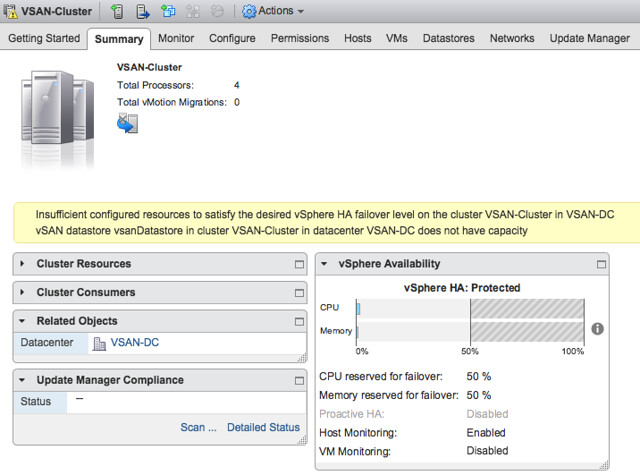I received this question through twitter today from Markus who was going through the vSphere 6.7 Clustering Deep Dive. And it is fairly straightforward: what happens when all hosts are isolated in a cluster, will the isolation response be triggered?
https://twitter.com/RealRockaut/status/1029652167735631874
I wrote about this a long long time ago, but it doesn’t hurt to re-iterate this. Before triggering the isolation response HA will actually verify the state of the rest of the cluster. Does anyone own the datastore on which the VMs that are impacted by this isolation run? If the answer is no, the ownership of a datastore is dropped during the election, then HA will not trigger the isolation response. I will try to update the book when I have time to include that, hopefully, that means a new version of the ebook will be pushed out to all owners automatically.

